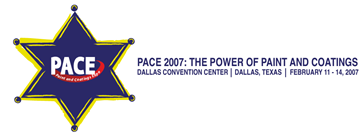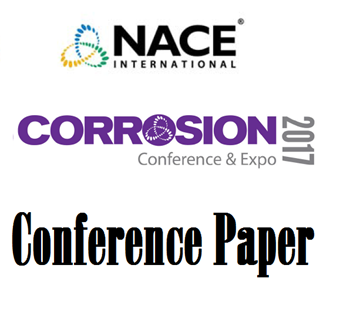Search
Individual Conference Papers
View as
Sort by
Display
per page
The Effect of MoS2 in Organic Coating on the Corrosion Resistance of 316L Stainless steel in 3.5 % NaCl Solution
Product Number:
51319-13277-SG
Publication Date:
2019
$20.00
The Effect of Peak Count or Surface Roughness on Coating Performance
Product Number:
41206-284-SG
Publication Date:
2006
$20.00
The Effect Of Potassium Hydroxide Primary Water Chemistry On The IASCC Behavior Of 304 Stainless Steel
Product Number:
ED22-17415-SG
Publication Date:
2022
$20.00
The Effect Of Process Parameters On Pack Aluminizing Of UNS S30400 Stainless Steel
Product Number:
51321-16946-SG
Publication Date:
2021
$20.00
The effect of reeling on the qualification of CRA lined and clad pipes according to NACE MR0175/ISO 15156-3: a methodology to qualify reeled pipelines
Product Number:
51323-18919-SG
Publication Date:
2023
$20.00
The Effect of Restrictive VOC Regulations on High Performance Coatings
Product Number:
41207-359-SG
Publication Date:
2007
$20.00
The Effect of Shot Peening on Steam Oxidation of Stainless Steel at 600°-650°C
Product Number:
51317--9426-SG
ISBN:
9426 2017 CP
Publication Date:
2017
$20.00
The Effect Of Specimen Size On The Stress Corrosion Crack Growth Rate Of 10% Cold Worked Type 316L In BWR Environment
Product Number:
ED22-17319-SG
Publication Date:
2022
$20.00
The Effect Of Strain On Surface Residual Stress In Alloy 600 Tensile Specimens
Product Number:
ED22-17258-SG
Publication Date:
2022
$20.00
The Effect Of Sulfur Components Of Corrosion Inhibitors On Chemical Qualification
Product Number:
51322-17801-SG
Publication Date:
2022
$20.00
The Effectiveness of Energy Efficient Coatings for Military Use
Product Number:
51217-081-SG
Publication Date:
2017
$20.00
The Effects of Additive Manufacturing on the Hydrogen Embrittlement of Alloy 718
Product Number:
51323-19358-SG
Publication Date:
2023
$20.00












